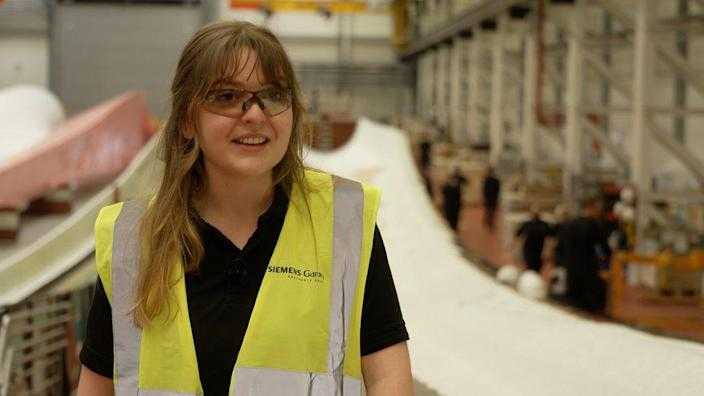Bury the Brexit ax and seize new opportunities, says CBI

[ad_1]
Business and government should end bitter Brexit divisions and focus on building a fairer and greener economy, according to the Confederation of British Industry.
This could generate an additional £ 700 billion in economic growth by 2030, according to the CBI.
The employers’ organization is launching what it says is a “historic†economic plan for the next decade.
And his proposals would lead to “prices for everyone”, not just for some companies, believes the director general of the CBI.
“For the past five years, business and government have been at odds. Brexit has been very controversial, â€Tony Danker told the BBC.
“But after the events of the past five years, we find ourselves in total alignment with what needs to be done. We need to level up, we need a greener economy and, my God, we must not waste this opportunity. “
The new CBI report, titled ‘Seizing the Moment’, focuses on the government’s policy agenda to tackle geographic inequalities, decarbonization and innovation and says 2021 must be a turning point for the UK s ‘he wants to meet these challenges in the long term.
Among them, leveling is the one that the government has claimed the most in recent election campaigns. And these promises to change the economic map of the UK have resulted in changes in the political map of the country. But keeping those promises won’t come with the wave of a magic wand.
Tony Danker says that while large investments in regional infrastructure are a good start, they are not enough on their own.
“The transport is excellent, we need it. Broadband is great, we need it. But we have to turn it all into real jobs and real growth, skills and wages, if leveling means anything to the people of this country, â€he said.
The CBI believes that it and its members have an important role to play.
“Governments don’t create jobs. Governments are not preparing people in the workplace for the skills of the future. Governments do not suddenly invent new decarbonization technologies. That’s what businesses do. “
How to level up?
At Alexandra Dock, in Hull, a factory managed by Siemens Gamesa produces 1,000 blades of offshore wind turbines per year.
With nearly 100 meters of molded fiberglass, this is high-tech equipment, and a low-carbon world will need a lot in the years to come. The plant has grown rapidly since it opened five years ago, in part thanks to government start-up funding and price guarantees.
“The government is doing a lot of good,†says Carl Ennis, Managing Director of Siemens UK.
“But it could have been even better. The blades for some of our wind turbines are made in the UK, but the research and development and the airframe (the motor the blades are attached to) are made in Denmark and Germany.
“What is lacking is the speed of action and the scale of the ambitions,†says Mr. Ennis.
He says Germany is investing 50 times more than the UK in new hydrogen technology, for example.
And while investments like those from Siemens benefit Hull in the form of better paying jobs for the local population, there is still a lot to be done.
Hannah Clague, an aerospace engineering graduate employed at the plant, says applications for jobs like hers have doubled since her arrival because “it’s such a lasting career and a career for life.”
But Hannah is not from Hull herself. She is from Reading, graduated from the University of Sheffield.
And at the moment, few locals are able to join it, says JJ Tatten of the Warren Youth Project.

“The reality is that the young people we work with are not ready for jobs in local tech and green industries,†he says.
“There is no lack of will, no lack of intelligence, no lack of energy. They just need that first rung of the ladder and that access to skills.
“There is a real danger for the young people we work with here in Hull, that if they cannot have the opportunity to develop some of these skills, they will not have the opportunity to accept a job in that field or industry. , and the people to fill these positions will have to come from outside â€.
The government upgrade manual looks something like this: pick an industry in which the UK has – or should – have a natural advantage, put in place funding, incentives and price guarantees to encourage companies to invest, involve local universities and colleges, use regulation to accelerate progress, and government procurement to help the customer.
But on top of that, the CBI believes it could play a much bigger role in coordinating investment in regional businesses, creating regional economic clusters and determining the direction of vocational training.
The specific recommendations for government policy in his report include an overhaul of the much-criticized apprenticeship tax and a requirement that economic regulators prioritize investment and innovation.
The CBI has said it is ready to play a more proactive role in transforming the economy than before. He sees this year as “a unique opportunity to unite and agree to transform the UK economy”.
Failure to make bold changes now would mean a return to business as usual, he said, including “the persistent low productivity and increased social division that followed the 2008 financial crisis.”
[ad_2]
